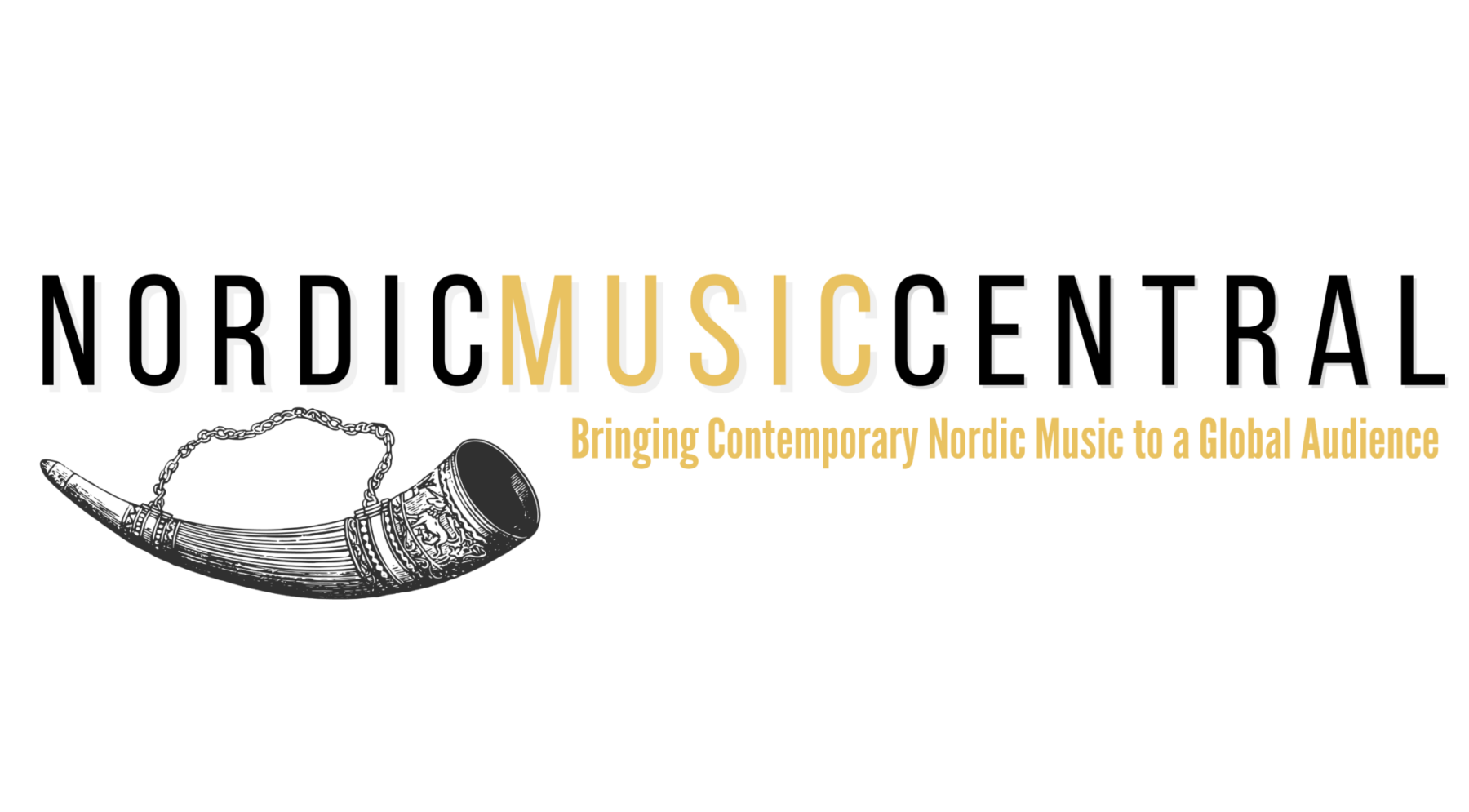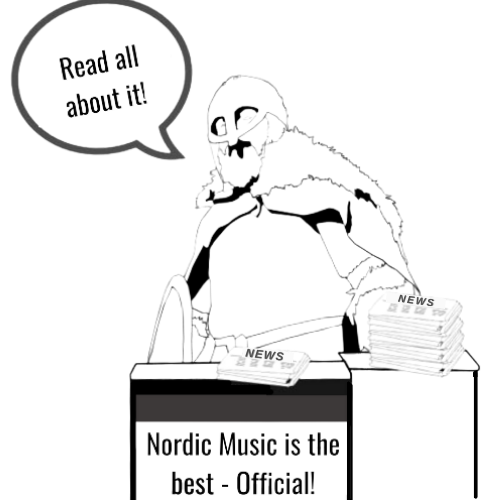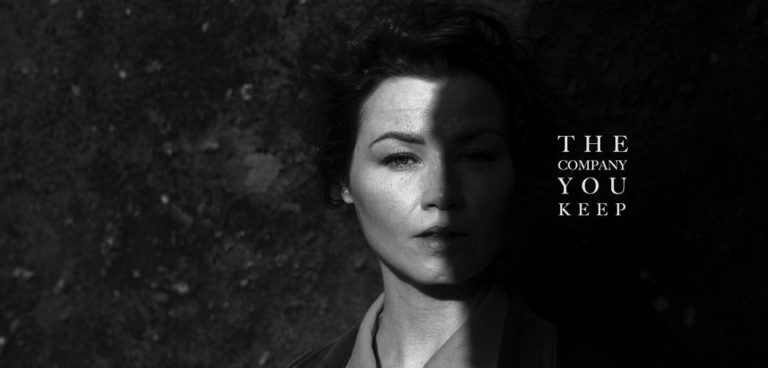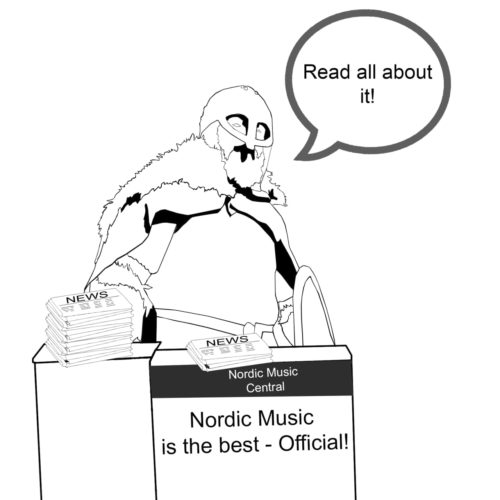It was around four years ago I first came across Soffía Björg, purely by chance, singing a cleverly-worded retro folk-rock ditty called ‘I lie’ with her band in an equally period black and white video. She immediately impressed for her talent and out of the box thinking and went on to release a sophisticated eponymous debut album which varied between folk, rock, and Americana but all of it with the unique flavour of Iceland; the one Björk has always managed to conjure up, and Of Monsters and Men on their debut album.
The songs included slow bass-heavy ballads, soft rock, and strident instrumental jams as she took us on a road trip around her island (for which she was acting as a tour guide at the time if I remember), into the bars and clubs of Reykjavik and in search of various individuals from her past. All of them underpinned by a vocal which can be gentle or operatic, and by some of Iceland’s leading musicians.
That album established her, in my view, as one of Iceland’s most accomplished performers and I often wondered since where the next one would take her; one which in her own words “has been my whole universe for the past 18 months”.
‘The Company you Keep’, a title that conveys a certain gravitas on its own,lies somewhere between an EP and an album, with seven tracks, let’s call it an EEP, and one of those musicians from the first album, the legendary Pétur Ben, makes an appearance on one of the tracks as a co-writer, while Krummi (Björgvinsson), who moves in similar musical circles, appears on another.
One track, ‘Judgement Day’, had already been released as a single and I’d made my own judgement on it, describing it as “setting a new gold standard”. It was immediately notable for a bluesy feel, and with instruments such as cello and trumpet playing a more significant role than the guitar, an anthem which builds to a grandstand finish.
At the same time it reminded me of some of the tracks on the first album, especially ‘Drink’. She sings “There was a time I lied, I cheated, I drank; went around in circles on an almost empty tank,” then, “I’m grateful to my friends, the ones who stuck around, while I was chasing shadows on the other side of town,” while all the time she was “scared to death to be all alone.”
It also adopts a more menacing aspect when it appears to reference a ‘Delilah’ – like moment when someone gets their just deserts on Judgement Day, which reminded me of another first album song where shots were fired, ‘Silence the Voices.’
You can sense a dark, disturbing pattern developing in her portfolio. A Nordic-noir drama series in song and verse. The chilling TV series Valhalla was shot in and her around her home town of Borgarnes, 70km north of Reykjavik and this song would have suited it perfectly.
In fact, the broader question is, is she recounting her own adventures, youthful or contemporary, in many of her songs, and accompanying regrets? And, yes, the company she keeps/kept? Probably.
Those suspicions may be confirmed in the opening lines of the first track, ‘Sour Dream’, an evocative title in its own right:
“Staring in the mirror, trying to see myself/always put the blame on someone or something else/it was right there in front of me but I wouldn’t see/I was busy living my sour dream”. (Note: ‘wouldn’t’ not ‘couldn’t’).
Musically the track is again overshadowed by mournful cello and horns and the subtle choral arrangement towards the end is a delight.
And I love the way she introduces it with a sharp “Amen!” (I thought it was ‘Hey, man! at first). You just can’t beat a religious statement in a song in which you’ve put yourself voluntarily in the confession box (I saw me when I sold out”). Think Anna Calvi with her abrupt exclamation ‘God!’ that sets off the song ‘Indies or Paradise’ as she seeks instant access for a dialogue, or Ingrid Håvik’s entreaty to the Almighty not to leave her in the Highasakite song of that title and for the same reason. This is equally effective.
If you thought the mood was going to lighten in the next track, ‘Last Ride’, forget it.
“Baby I need the wind in my hair/a couple of bullets piercing the air/We had a good run/ boy did we have fun/ I wish we had just a little more time…
Let’s take the last ride, we die tonight.” Then, “We don’t know how to take it slow”.
The imagery she constructs here is impressive. I’m reminded of Lydmor’s ‘Lamp-post light’ and the line “You could be fun like rollercoaster rides, somebody says/…and walks away”, dug out of the same despair.
It is set at the same pace as a first album track, ‘Slow and low’ and induces the same smouldering atmosphere.
The third track, ‘Rodeo Clown’, is the one featuring Krummi, and a love song so replete with Americana it could be Barbara Streisand and Kris Kristofferson. A total contrast, it hooked me from the first bars and the subdued trumpet contribution is superb. If this isn’t playing the airwaves right now in Nashville and Austin there’s something seriously wrong. Never mind ‘Let’s go Brandon!’…let’s go Soffía!
It’s Pétur Ben’s turn to join the fray on the fourth track, ‘Play the Game’. The mournful cello has by now become a common feature (it’s ever bit as doleful as the one in Choir of Young Believers’ ‘Hollow Talk’) and it is highly impactful here, over simple piano.
Pétur Ben is well known as a cross-genre experimentalist. He was the lead guitarist on the first album and introduced some interesting excursions into some of the songs, especially in the live versions. (He also scored the aforementioned ‘Valhalla’).
‘Play the Game’ has a distinctly dystopian feel, ‘1984’ or ‘Brave New World’ with the attendant sexuality played out against the backdrop of totalitarianism; one in which you have no alternative but to play the game.
“Burning bridges, crashing cars/spending money on never ending wars/drug your system, quiet your mind/ keep ‘em coming leave your consciousness behind.”
“Never ending, never knowing/never reaching that place you were going”.
Then,
“Play the game/fake sex/ feel no shame/f***ing with your ex…
..C’mon, let’s run away/lucky that we live to die another day”.
I may be misrepresenting the lyrics here. It may well have another meaning altogether, perhaps just a break up song, but the top artists and songwriters often write their lyrics for multiple interpretations by listeners and I suspect that’s what Soffía Björg has done here. Whatever the message, it’s a brilliant song.
‘Get there’ is the most morose song on the album and yet remains positive in its outlook. It reprises some of the work on the first album, which appeared to reference some family members (she comes from a very big one, almost all of them musicians) and other acquaintances.
After a funereal opening cello section it starts off quite shockingly, “Before my brother killed himself/ he said ‘all the colours here are grey’/well I didn’t know what to say/so I just turned the other way.
And outside my car window/ the sun was shining/maybe I can give him a little bit/of that light”.
Then she sings of a boyfriend who “smoked and joked and played a part, and had nothing else to say” and who saw her as his ticket to fame. Maybe, she wonders, “I can help him on my way” (not his way, another very clever lyrical trick) and “give him a bit of my light”.
I don’t know if the story of the brother is true (and I wouldn’t ask) but Soffía has been candid on social media about a partner whom she thought was ‘the one’ but turned out not to be. Then the song continues with a description of her current circumstances –
“Moved back into my parents’ house/for the second time/feel like a 15-year old failure/turning 35/some days it’s harder to keep the dream alive/I don’t want to waste any more of my time.”
To the best of my knowledge this is remarkably accurate and frank storytelling. She did move back in with her parents, to write and record the album (and has publicly thanked them for it online this week) and within the last year she has turned 35.
Throughout she asks the other characters to ‘let me know when you get there’, signifying that she’ll still be here, fighting her corner. And then concludes with the perfect, heartening riposte: “I’ll let you know when I get there!”
The final track is the title one. It is a little more in the style of the first album than the others including two parts where Soffía proves she can ‘belt’ vocally with the best of them.
I’m not quite sure how to interpret this one. The ‘end’ track, for me, was the one before it, for the reasons I suggested. ‘The Company you keep’ may be an ‘overview’ of her situation and a song which was not written in order, i.e. last. And it is not clear whether that unwelcome company is professional, personal, the ‘night’ itself (“The world gets so small you’re still in your room/and its high noon again and you’re thinking about it/Meeting the wishes of the night”) or even the raconteur herself in an alter ego.
More questions than answers. It’s almost like a James Bond film – yes, ‘Die another Day’ I suppose – where they used to tell you in the end credits that ‘Bond will be back’. As if we’re being prepared for the sequel. If that’s the case, bring it on.
She has said today, “I cannot be more pleased with the outcome and I am so proud and happy to share it (the album) with the world,” which is what she told me were her aspirations for 2021 in an interview earlier in the year.
She has every right to be proud. She opens her heart and bares her soul here about issues, mainly personal ones, in a way which isn’t at all cloying. I have no compunction at all in saying that it puts her in the same category as artists like Joni, Adele and Fiona.
When you ‘champion’ an artist from early on you do worry if you’ve made the right call. But at every stage Soffía Björg has raised her own bar and easily cleared it. I wondered if the second album might be difficult as it is for so many writers but no problem; she just breezed through it.
Everything about this album is spot on; the musicianship, arrangement, vocals, lyricism, recording, variety; the whole nine yards.
I’ve been lucky with albums since NMC started. The first two albums I reviewed I scored 9/10 they were that good and I have no hesitation about doing the same with this one.
In a song ‘The Road’ on the previous album she sang about a long road journey as a metaphor perhaps for the struggle many artists go through to gain recognition.
Well, she got there. The farm girl from Borgarnes done good.
NMC rating 9/10
The album is out on 29th October, streaming on digital platforms.
Musicians involved:
Instrumental players – Unnur Jónsdóttir, Ari Bragi Kárason and Magnús Trygvason Eliassen
Singers – Fríða Dís, KARÍTAS, Kristín Birna Óðinsdóttir and Guðmundur Bergmann
Featured artists – Krummi and Pétur Ben.
Find her on:
Facebook: https://www.facebook.com/SoffiaBjorgMusician
Instagram: https://www.instagram.com/soffiabjorg/




